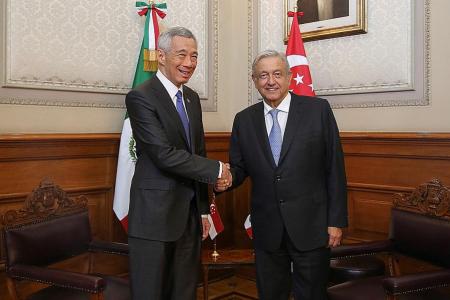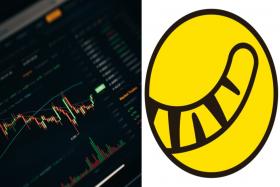Asia needs global partners and markets to prosper: PM Lee
He says Asia will lose out on many opportunities if it chooses to close in on itself
The growing importance of Asia in the world economy should not be a cause for worry, as Asia needs diverse partners and access to global markets to continue to prosper, Prime Minister Lee Hsien Loong said.
Singapore's world view is that there are opportunities around the world, which is why 16,000km and the Pacific Ocean are no impediment for cooperation with Mexico and the rest of Latin America, he added.
During a fireside chat with 250 business leaders in Mexico City on Tuesday, Mr Lee was asked if the "Asian Century" would lead to an Eastern Bloc of countries, and how other countries would factor in this geopolitical shift of power.
The Asian Century refers to the projected dominance of Asia in the world in the 21st century.
While the centre of gravity will continue to shift towards Asia, Mr Lee said he does not see Asia becoming "the centre of the world" as the region needs outside markets, cooperation and technology in order to prosper.
"If it closes in on itself, and we just say 'this is the Asian region, we are doing business with ourselves in Asia', well you won't starve, but I think you will miss out on many opportunities," he said.
"We will be the poorer for it, and so will be the world."
Despite a recent surge in insularity, many countries still want to cooperate because they know cooperation is win-win, said Mr Lee. He cited the Comprehensive and Progressive Agreement for Trans-Pacific Partnership (CPTPP) mega trade deal which both Mexico and Singapore are party to, and the Regional Comprehensive Economic Partnership (RCEP) that is poised to be signed in 2020.
The CPTPP is a free trade agreement between Australia, Brunei, Canada, Chile, Japan, Malaysia, Mexico, New Zealand, Peru, Singapore and Vietnam.
Once fully implemented, the 11 countries will form a trading bloc representing 495 million consumers and contributing 13.5 per cent of global GDP in total or approximately US$13.5 trillion (S$18.4 trillion).
Covering a market of about two billion people and contributing one-third of global GDP, RCEP will link 15 Asia-Pacific countries - Australia, Brunei, Cambodia, China, Indonesia, Japan, South Korea, Laos, Malaysia, Myanmar, New Zealand, the Philippines, Singapore, Thailand and Vietnam - and create the world's largest trading bloc.
In the absence of rules in the World Trade Organisation that would allow the world to move towards freer trade while accommodating more conservative countries, such willing groupings are the way forward, said Mr Lee.
"In your part of the world, you are doing the same: you have the Pacific Alliance with Columbia, Chile and Peru," he said. "Singapore is negotiating a free trade agreement with the Pacific Alliance, and I hope we'll be able to close it by the end of the year."
Meanwhile, five Singapore agencies inked agreements with their respective Mexican counterparts following a meeting between Mexican President Andres Manuel Lopez Obrador and PM Lee at the National Palace.
Among these were agreements to promote greater cooperation in water resource management, closer partnership in science and technology cooperation, and a renewed deal to team up on international development and tackle transboundary issues such as pandemic outbreaks.
Get The New Paper on your phone with the free TNP app. Download from the Apple App Store or Google Play Store now


